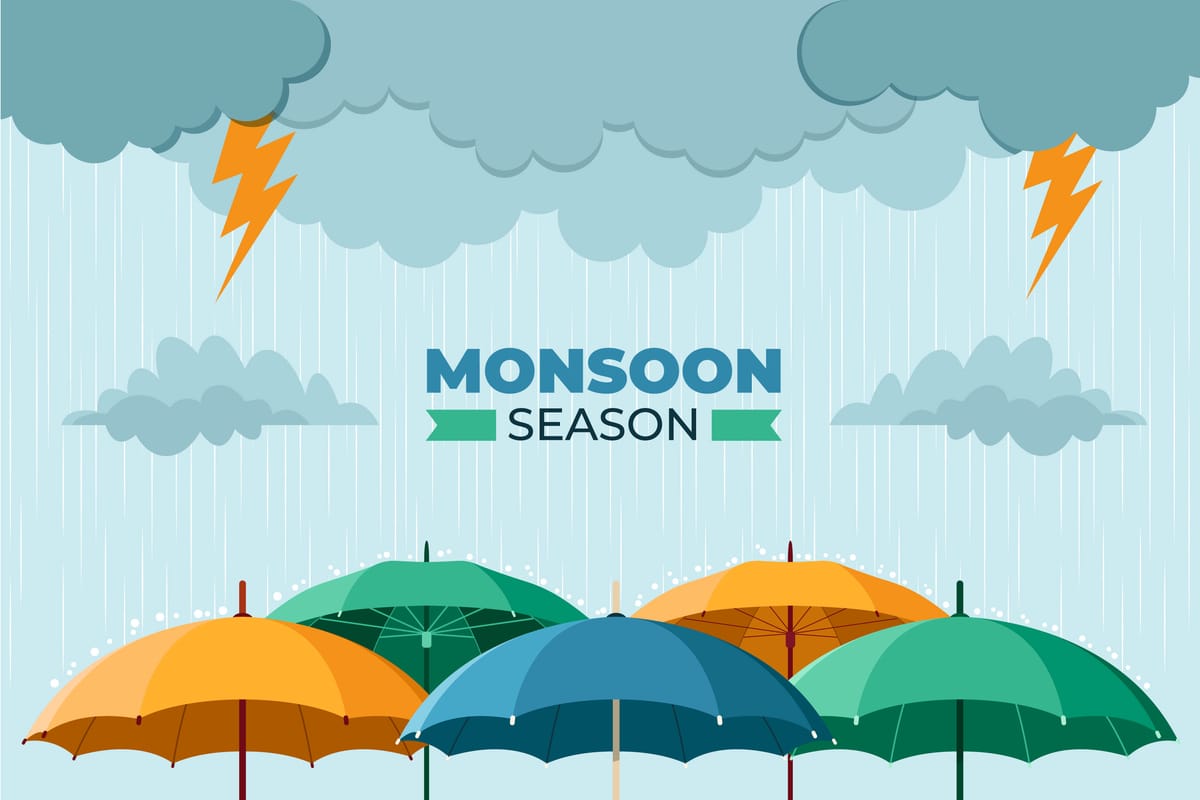Tips for Monsoon

While the monsoon brings cooler weather and lush greenery, it also creates a breeding ground for bacteria, viruses, and fungi. Eating the wrong foods, especially street food or leftovers, can lead to serious health concerns such as food poisoning, diarrhea, cholera, and typhoid. A well-planned, hygienic diet becomes essential to boost immunity, improve digestion, and prevent infections. High humidity and food or water contamination can trigger digestive issues and weaken the immune system.
What Are the Most Common Monsoon Diseases in India?
The most common diseases during monsoons are transmitted through 4 major mediums: mosquitoes, water, air, and contaminated food. Here’s what you need to know about them:
Mosquito-borne diseases
Monsoons are the breeding season for mosquitoes and mosquito-borne diseases. India bears a huge burden of mosquito-borne diseases, contributing 34% of global dengue and 11% of global malaria cases. Common mosquito-borne diseases are Malaria, Dengue & Chikungunya.
How to Stay Safe from Mosquito-borne Diseases This Monsoon
- Use mosquito nets in your house
- Don’t allow water to stagnate or collect anywhere in and around the house
- Maintain hygiene and wash your bathrooms regularly
- Use mosquito repellants/creams before stepping out of the house
Water-borne Diseases
According to the World Health Organization (WHO), more than 3.4 million people are affected by water-borne diseases in India. Children are the easiest victims because of a developing immune system that is prone to contracting diseases. The most common water-borne diseases are Typhoid, Cholera, Leptospirosis, Jaundice, Gastro-intestinal infections & Hepatitis A.
How to Stay Safe from Water-borne Diseases This Monsoon
- Always boil water and wash fruits and vegetables thoroughly before consumption
- Keep your food always covered and avoid consumption of outside food
- Ensure personal and environmental hygiene is always maintained (carry a hand sanitizer or wash your hands often)
- Ensure open drains and potholes in your locality are covered
- Get your children vaccinated if they are not already
Air-borne Diseases
Monsoon brings with it multiple air-borne infections that are transmitted by tiny pathogens (disease-causing viruses) through the air, resulting in the common flu, viral fever, cold, cough, and sore throat. They are mostly mild and can cause minor infections in adults. However, due to a weak or developing immune system, senior citizens and children are more prone to infections during this season. The most common air-borne diseases are Cold & flu.
How to Stay Safe from Air-borne Diseases This Monsoon
- Cover your mouth and nose while coughing or sneezing
- Drink warm water every few hours and carry your own boiled drinking water
- Keep your children away from people who are already infected and ensure they wash their hands and feet thoroughly once home from outdoors
- Ensure your homes are always well- ventilated
General Health and Wellness Tips for the Indian Monsoon
So, here are some things you can do to stay safe in the Indian monsoon:
- Keep yourself always hydrated - ensure you drink only boiled water, and avoid drinking anything outside
- Always follow a strict personal hygiene routine to avoid fungal infections
- Wear full-sleeved light clothes to protect your skin
- Eat a balanced diet and keep your immune system strong.
- Consume freshly washed, boiled vegetables, reduce your intake of fats, oils, and sodium, and avoid dairy products as they can contain microorganisms that are harmful to your health
- Eat light meals and wash your vegetables and fruits with vinegar as an acidic medium can help eliminate any harmful bacteria present in your food.




